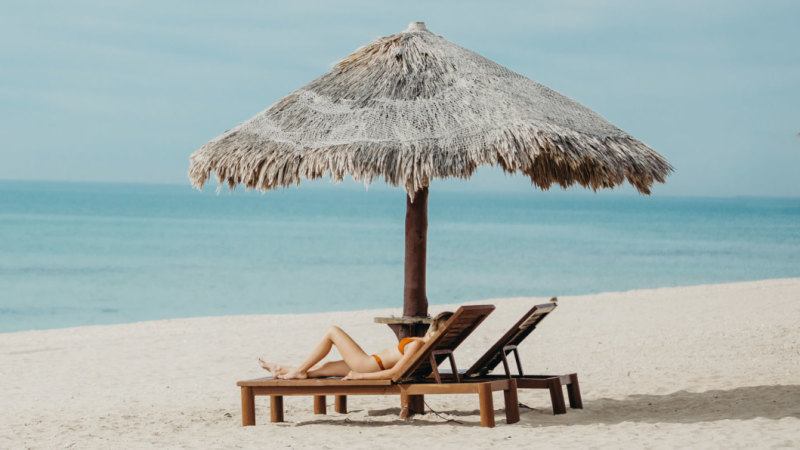There's no doubt we're an overworked bunch, although we wear our busyness as a badge of honour nowadays, frantically checking emails until all hours or scoffing down lunch while chained to our desks. And while our screensavers may sport the blue and white vistas of glittering Greek islands, we're far more likely to daydream about such locations than actually take the time off to visit them.
At least, that's what research shows, with a report by technology company Xero finding that Australians clocked up more than 111 million days of unused annual leave in 2017. The report also found 52 per cent of Aussie workers failed to use all their entitled annual leave that year.
We are seeing a reduction in the risk for cardiovascular disease the more vacationing a person does.Credit:Stocksy
There are many reasons why we are reluctant to go on leave, says psychologist Emi Golding of Sydney's Workplace Mental Health Institute. Some people like to keep leave up their sleeves in case of an emergency, others worry they'll lose control if they step away. Then there are those who feel uncomfortable asking for time off.
Yet you can't overlook the health benefits of taking a break. As Golding notes, the original idea behind a holiday was as a "holy day" to "connect with spirituality, or your 'higher' or 'deeper' self". A holiday, she adds, can offer just that: an opportunity to dial down external pressures while focusing on your inner self and evaluating your life's direction.
A key means by which holidays can offer you such clarity lies in the change of scenery. "One of the ways in which we can change our emotional state is to actually change our physical environment," says Golding. "It shifts our neurology and forces our brains to think in new ways, instead of following all the habitual patterns of thinking we get so used to."
Life coach Megan Luscombe agrees that the mental clarity provided by a holiday is hard to beat. By heading to a new location, we're no longer distracted by our everyday routines and can develop the distance we need to be able to see the "bigger picture" of our lives.
Consequently, she says, holidays don't just feel good while you're sipping a café au lait in the City of Love, you're also likely to return feeling refreshed from the "mental reset".
Other research shows that holidays aren't just good for your mind, they're also good for your heart. A 2019 study published in the journal Psychology & Health found that taking a break could reduce the risk of metabolic syndrome, a collection of risk factors for cardiovascular disease.
And the benefits are cumulative. As the study's lead author, Syracuse University assistant professor Bryce Hruska, noted, "We are actually seeing a reduction in the risk for cardiovascular disease the more vacationing a person does."
Meanwhile, a 2016 study into the genetic profiles of healthy people who went on a resort holiday compared with others who meditated at the same retreat, found that while the meditators fared better in certain areas, both groups had a change in gene activity, the most notable of which related to stress response and immune function.
"It was impressive to see the large changes in gene expression from being away from the busy pace of life, in a relaxing environment, in such a short period of time," said lead researcher Elissa S. Epel, professor of psychiatry at the University of California.
While jetting off to Europe may be beyond the reach of many, Luscombe says cheap local breaks can be just as beneficial. It's not necessarily about the destination, she says; rather, it's about creating a new agenda and giving yourself the mental space to step out of the everyday grind.
Golding believes it's time to re-frame the way we think about holidays. Instead of working our whole lives, then retiring, we should consider taking "mini-retirements" throughout life. Luscombe also wants us to change the way we view breaks, seeing them as a necessity rather than a luxury. After all, she says, "Holidays are an essential part of mental wellbeing."
This article appears in Sunday Life magazine within the Sun-Herald and the Sunday Age on sale September 8.
Source: Read Full Article

